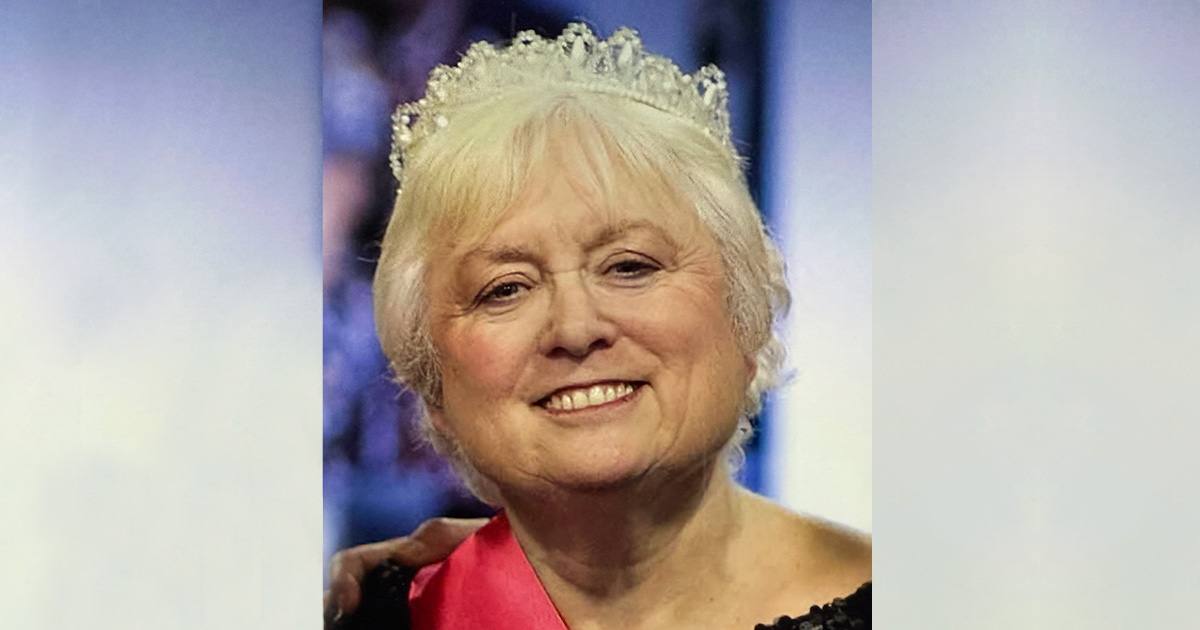The Bachelor of Science (Honours) degree in Diabetes Specialist Nursing is a national degree that was written and designed by DSNs via the former National Education and Development Group for Diabetes Specialist Nursing, and has successfully ran for 6 years.
As previously reported, when this degree was in its pilot phase from 2004 to 2006 (Phillips and MacArthur, 2006) the exploding prevalence of diabetes worldwide continued unabated (Yorkshire and Humber Public Health Observatory, 2009). Recent global data from the International Diabetes Federation (2010) published for World Diabetes Day state that every 5 seconds one person develops diabetes, every 10 seconds one person dies of diabetes and every 30 seconds a limb is lost to diabetes.
These frightening statistics confirm the need for nurses to possess a wide breadth of knowledge and well-developed skills in diabetes care. This is further supported by evidence from the UK Prospective Diabetes Study follow-up in type 2 diabetes (Holman et al, 2008) and the DCCT (Diabetes Control and Complications Trial; DCCT Research Group, 1993; White et al, 2008; Albers et al, 2010) in type 1 diabetes regarding the legacy effect of early, intensive glycaemic control and the application of this knowledge into practice (Kela and Davies, 2010).
In an ever-changing world of healthcare provision, procurement, job threats and commissioning of services, the incidence diabetes continues to rise. The UK Association of DSNs and the RCN Diabetes Nursing Forum predicted this and responded by developing practitioners with specialist and high-quality diabetes nursing skills. This would also allow for succession planning, ensuring availability, support and provision of well-educated and developed DSNs (Phillips and MacArthur, 2006) as a point of contact for people with diabetes.
This article gives an update on the national degree in diabetes specialist nursing and reports on the progress of its graduates.
The national diabetes specialist nursing degree
The degree was prepared by existing DSNs (Box 1) with the aim to support and develop already qualified nurses with a particular interest in diabetes. To evaluate whether the degree has proved to be “fit for purpose” as originally intended, it is worth reviewing the degree results (Table 1) from the graduating students and presenting their feedback.
Only two students have left the programme, one as a result of relocation and one due to ill health; no student left the course due to academic failure.
Degree ethos and vision
The degree ethos and vision has always been to use a structured layer-by-layer approach to learning, developing and enhancing students’ existing knowledge and supporting their individual learning needs. Figure 1 demonstrates the components required for this vision.
The students’ clinical mentors, who are all practising, experienced and enthusiastic DSNs, have been pivotal in the student learning experience. Regular communication between students, their clinical mentors and the teaching team has given rise to a tripartite approach to the learning experience and student support (Webb et al, 2003).
Students on the degree programme develop their skills, expertise and knowledge in diabetes management through working with their clinical mentors. Students are assessed over a 12-month period by way of a portfolio; this represents the “clinical problem” for investigation in Figure 1. DSNs are provided as mentors for students on the degree programme to enable facilitated knowledge translation within the current practice of diabetes specialist nursing, focusing on changing health outcomes through evidence-based clinical knowledge (Davis et al, 2003). The role that the clinical mentors play is fundamental for student skill development and knowledge acquisition.
Curriculum
The degree curriculum (Box 2) has remained constant in terms of its original foundation and design by the national education and development group.
The evidence-based practice module provides students with an understanding of how solid research findings are translated into clinical practice, represented by the left-hand circle in Figure 1. The third module, “psychosocial issues in the care of a person with diabetes”, encourages students to develop an appreciation and understanding of the issues based around patient preference by developing consultation, communication, change management and psychological skills. This forms the circle on the right-hand side of Figure 1.
The final module, “education and management strategies for people with diabetes”, draws on evidence from Funnell et al (2009) and forms the basis of the final layer of skill development, represented by the top circle in Figure 1. Students are taught how to make informed, evidence-based and person-centred clinical decisions that can be translated into the educative process of informing and supporting people to learn and develop skills in their diabetes self-management (Kawamoto et al, 2005).
Student/graduate employment
While undertaking the degree, or upon completion, students have completed a variety of posts:
- “New to post” DSNs.
- DESMOND (Diabetes Education and Self-management for Ongoing and Newly Diagnosed) educators and senior diabetes nursing leads in practices.
- Diabetes educators for DAFNE (Dose Adjustment For Normal Eating) and insulin pump therapy.
- Community DSNs.
- Diabetes inpatient specialist nurses.
- Senior practice nurses with diabetes leads.
This reflects the original objectives of the degree and demonstrates how access into diabetes care with advanced skills and knowledge has facilitated this transition. It is heartening that the degree has fulfilled what was originally intended at its inception, particularly in the current economic climate of fewer job opportunities. Additionally, graduates of the degree have been successful in securing a post in 100% of their job applications.
Student feedback
Kath Troop, Inpatient DSN, Nottingham (Figure 2):
“Whilst undertaking my degree I took up a post working in Nottingham University Hospitals as a diabetes inpatient nurse specialist. Since completing my studies I find I think differently about how services are organised and provided; I now want to take an active part in planning and facilitating change. I look forward to having the opportunity to be involved in such projects.
“In terms of working with patients, I feel I am able to take a much more patient-centred approach and have a deeper understanding of the difficulties people with diabetes face in the day-to-day management of their condition. I am immensely grateful also to my clinical mentor, consultant nurse Mani Basi from Derby, who, with the degree, has enhanced my enjoyment of my work. Thanks go both to Mani and to the University of York!”
While undertaking the degree, Kath, along with her colleague Trish Stewart, won first prize in the Journal of Community Nursing Excellence in Practice Awards in 2008 for their work in improving knowledge and care in diabetes in residential settings. This work was also published (Stewart and Troop, 2008) and presented at the 2009 Diabetes UK Collaborative Primary Care Conference in York.
Val Hague, DSN, Scunthorpe:
“Since completing my degree, I gained a post as a DSN and have worked with a colleague to set up an insulin pump service in our area and am looking forward to increasing the number of patients who are able to access this expanding area of diabetes care.
“Completing the degree has given me the confidence to pass on my knowledge to other healthcare professionals; I have been involved in setting up educational days both for trained and untrained staff within the hospital. I am also an associate tutor for a university and run a course for inpatient nurses looking to improve the care of patients with diabetes on the wards.”
Sue Corner, Diabetes Educator and Community Nurse in Rehabilitation, York (Figure 3):
“I have wanted to specialise in diabetes for a long time so the opportunity of doing this at degree level was perfect. It is my intention to raise the profile of diabetes care within the community hospital where I work, and you never know, maybe one day a specialist diabetes service could be provided on site. I am presently collaborating with practice nurse colleagues in the area to work towards implementing some form of structured education within primary care.
“I have found the skills learnt within the degree course become a significant part of your everyday work: reflective practice and the need to explore the most up-to-date evidence are instinctive! How did that happen?! I am more confident about instigating and motivating change and am thoroughly enjoying educating colleagues and patients within the hospital.
“My roots are in district nursing so my long-term ambition is to pursue a community DSN post. Such a post does not exist at present but my dissertation provided strong evidence that its development would certainly strengthen the diabetes services locally, and I know as a regular reader of the Journal of Diabetes Nursing that community DSNs are often celebrating their success.”
Other students have published articles both during and since undertaking their degrees (Reed, 2009; 2010; Walker, 2009; Owen, 2010), and many have also presented or have been invited to present their work at national conferences. One student was invited to Japan to speak about her work as a DSN in a specialist joint diabetes and renal service. These were unexpected but very pleasant additional outcomes from the degree. The authors feel that seeing these students flourish and continuing to flourish within their DSN roles is gratifying and reflects the ethos of the degree from its inception.
Teaching team
The degree is predominately taught by DSNs and specialist clinicians within diabetes care, such as consultant diabetologists, specialist dietitians, specialist podiatrists and psychologists. NHS Diabetes has also supported and taught previous and current students. The university teaching team include a former DSN as the lead for diabetes education and currently practicing DSNs as lecturer–practitioners in diabetes care. This combination delivers a degree course that is vibrant, current and dynamic with enthusiasm and well-informed support for the students, as diabetes specialist nursing is at the forefront of all session delivery.
Degree place funding
Currently, there are national funding difficulties for study leave and embargos in place across many acute and primary care organisations. The University of York and King’s College London are fortunate to have Strategic Health Authority (SHA) funding in place for the degree. Additionally, because this is a national degree, students from outside of the SHA funding area have accessed a reciprocal arrangement for funding of programmes. No students have had to self-fund the programme at this time, and some students have received grants to assist them in undertaking their degrees.
Conclusion
The education and development group designed and structured the degree as a national qualification, which the authors still hope will be adopted to be available across the UK, to try to ensure clarity and standardisation of educational preparation for new-to-post DSNs and also for nurses wishing to develop their diabetes specialist nursing skills. The degree is available at King’s College London with Angus Forbes, Senior Lecturer, and Jakki Berry, Lecturer/Practitioner, and at the University of York with Anne Phillips, Programme Lead.
We look forward to the next few years under a new government with interest!
Further information
For more details of the London course please contact Angus Forbes ([email protected]) or Jakki Berry ([email protected]). For details of the York course please contact Anne Phillips ([email protected]) or Clare MacArthur ([email protected]).





NHS England to allow weight-loss injections for prioritised patient cohorts from late June.
5 Apr 2025